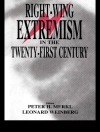Why is public debate increasingly polarised – and what can we do about it?
Is our democracy corroding? In this original, eloquent essay, Waleed Aly and Scott Stephens explore the ethics and politics of public debate – and the threat it now faces.
In a healthy society we need the capacity to disagree. Yet Aly and Stephens note a growing tendency to disdain and dismiss opponents, to treat them with contempt. This toxic partisanship has been imported from the United States, where it has been a temptation for both left and right. Aly and Stephens discuss some telling examples, analyse the role of the media, and look back to heroes of democracy who found a better way forward.
Arguing that democracy cannot survive contempt, they draw on philosophy, literature and history to make an urgent case about the present.
‘So what do we owe those with whom we might profoundly, even radically, disagree? In our time, the answer increasingly seems to be: Nothing. Absolutely nothing. We’ve come to regard our opponents as not much more than obstructions in the road, impediments standing between us and our desired end. We have grown disinclined to consider what it might mean to go on together meaningfully as partners within a shared democratic project. To put it bluntly, we see no future with our political opponents because we feel we have nothing to learn from them.’ Waleed Aly & Scott Stephens, Uncivil Wars
This issue also contains correspondence discussing Quarterly Essay 86, Sleepwalk to War, from Malcolm Turnbull, Kevin Rudd, Michael J. Green, Kishore Mahbubani, Sam Roggeveen, Peter Varghese, Rory Medcalf, Emma Shortis, Dennis Altman, Hugh White
Over de auteur
Scott Stephens is the ABC’s Religion and Ethics online editor. He is widely published on moral philosophy and has edited volumes of the writings of Slovenian philosopher Slavoj Žižek and the Australian philosopher Raimond Gaita. With Waleed Aly, he co-hosts The Minefield on ABC Radio National.












